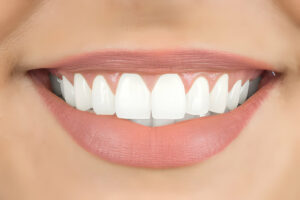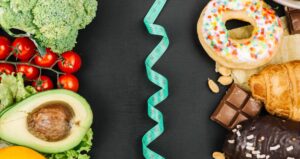Scientists have found a clear connection between food and sleep disorders. This article explores how your dietary choices can significantly impact your sleep quality and offers guidance on what to eat and avoid before bed for a more restful night.
Table of Contents
ToggleThe Impact of Diet on Sleep
Many people experience occasional sleep disruptions, like the post-afternoon coffee jolt that keeps you wide-eyed at night. But did you know your overall food choices throughout the day can also play a crucial role in how well you sleep?
A growing body of research suggests a strong link between diet and sleep quality. Studies have shown that poor dietary choices can contribute to the onset or management of insomnia, a common sleep disorder characterized by difficulty falling asleep or staying asleep.
Sleep Disorders and Dietary Habits in the US
In the United States, a significant portion of the population suffers from sleep disorders like insomnia and obstructive sleep apnea (OSA), a condition where the airway becomes blocked during sleep, causing breathing to pause briefly.
Interestingly, this high prevalence of sleep disorders coincides with dietary habits that are often low in fiber, fruits, vegetables, and whole grains, while being high in unhealthy fats, processed foods, and added sugar.
Researchers examined data collected through a national survey in the US (2011-2016) and found an association between not meeting dietary recommendations and shorter sleep duration. People who consumed insufficient fruits, vegetables, legumes, and whole grains tended to sleep for less time.
Another study followed over 1,000 young adults (aged 21-30) who participated in an online program designed to increase their daily intake of fruits and vegetables. The study found that participants who upped their fruit and vegetable consumption over three months reported improvements in sleep quality and fewer symptoms of insomnia.
Best Foods for Sleep to Promote Better Sleep
The connection between diet and sleep goes beyond simply avoiding disruptive foods. Consuming specific foods can actively promote better sleep quality. Here are some sleep-friendly dietary choices:
- Mediterranean Diet: Rich in plant-based foods, olive oil, and seafood, with a lower intake of red meat and added sugar, the Mediterranean diet has been linked to improved sleep.
- Anti-inflammatory Diet: Similar to the Mediterranean diet, this dietary pattern emphasizes certain anti-inflammatory components like flavonoids found in fruits and vegetables, which may improve sleep quality.
- Fatty Fish: Salmon and other fatty fish are excellent sources of vitamin D and omega-3 fatty acids, both associated with better sleep.
- Dairy Products: Milk, yogurt, and cheese contain tryptophan, an amino acid that plays a role in serotonin production, a neurotransmitter that promotes sleepiness.
- Kiwifruit and Cherries: These fruits are naturally high in melatonin, a hormone that regulates sleep-wake cycles.
- Other Berries: Strawberries, blueberries, and other berries contain antioxidants that may improve sleep quality.
- Beans and Oatmeal: These fiber-rich options promote sustained blood sugar levels, helping to prevent sleep disruptions caused by dips in blood sugar.
- Lean Protein Sources: Poultry, turkey, and lean cuts of meat contain tryptophan, which can aid sleep.
Foods to Avoid Before Bed
While incorporating sleep-promoting foods into your diet is beneficial, it’s equally important to avoid certain foods that can disrupt your sleep:
- Saturated Fats: Found in fatty cuts of meat, fried foods, and processed snacks, saturated fats can decrease the amount of deep, restorative sleep you get.
- Refined Carbohydrates: Sugary treats, white bread, pasta, and white rice are quickly digested, causing blood sugar spikes and crashes that can disrupt sleep.
- Alcohol: While alcohol may initially make you feel drowsy, it disrupts sleep quality in the long run by reducing deep sleep stages and causing more frequent awakenings throughout the night
- Caffeine: The stimulating effects of caffeine can linger for hours, making it difficult to fall asleep or stay asleep if consumed too close to bedtime. Experts recommend avoiding caffeine at least six hours before bedtime [[invalid URL removed]].
- Spicy Foods: Spicy meals can cause heartburn and indigestion, leading to discomfort that disrupts sleep. It’s best to enjoy spicy dishes earlier in the day.
- Large Meals: Eating a heavy meal right before bed can make digestion difficult and uncomfortable, hindering sleep quality. Aim for a lighter dinner and allow at least 2-3 hours for digestion before bedtime.
- Sugary Drinks: Similar to refined carbohydrates, sugary drinks like soda and juice can cause blood sugar spikes and crashes that disrupt sleep patterns. Opt for water or herbal teas before bed.
Additional Tips for Better Sleep
- Develop a Relaxing Bedtime Routine: Establish a consistent sleep schedule by going to bed and waking up at similar times each day, even on weekends. Wind down before bed with calming activities like reading, taking a warm bath, or practicing relaxation techniques like deep breathing or meditation.
- Create a Sleep-Conducive Environment: Ensure your bedroom is cool, dark, and quiet. Invest in blackout curtains, earplugs, and a comfortable mattress and pillows to create an environment optimized for sleep.
- Limit Screen Time Before Bed: The blue light emitted from electronic devices like phones, laptops, and TVs can suppress melatonin production and make it harder to fall asleep. Avoid screen time for at least an hour before bed.
- Regular Exercise: Regular physical activity can improve sleep quality, but avoid vigorous workouts too close to bedtime, as they can be stimulating.
Conclusion
By making smart dietary choices and establishing healthy sleep habits, you can significantly improve your sleep quality and wake up feeling refreshed and energized. If you continue to experience sleep problems despite these changes, consult a healthcare professional to rule out any underlying medical conditions.

















